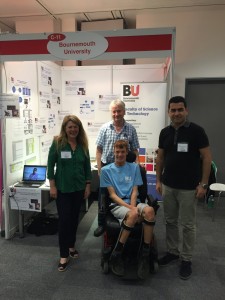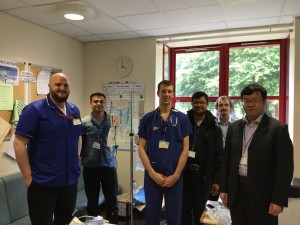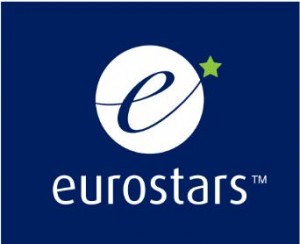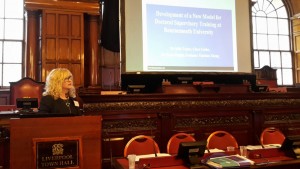![]() The British Academy have released their latest call closing date information for various schemes. Details of these can be found on the ‘Standard Funder Calls’ page of the research blog.
The British Academy have released their latest call closing date information for various schemes. Details of these can be found on the ‘Standard Funder Calls’ page of the research blog.
More detail on each of the calls is shown below:
- Mid-Career Fellowships Outline Stage
- http://www.britac.ac.uk/british-academy-mid-career-fellowships
- Scheme Opens: 10th August 2016
- Deadline for Applicants: 14th September 2016
- Deadline for Institutional Approval: 15th September 2016
- Deadline for Referees: 22nd September 2016
- Result of Outline Stage Announcement: December 2016
- BA/Leverhulme Senior Research Fellowships
- http://www.britac.ac.uk/baleverhulme-senior-research-fellowships
- Scheme Opens: 12th October 2016
- Deadline for Applicants: 16th November 2016
- Deadline for Institutional Approval: 17th November 2016
- Deadline for Referees: 24th November 2016
- Final Award Announcement expected: 31st March 2017
- Earliest Award Start Date: 1st September 2017
- Latest Award Start Date: 1st January 2018
- Wolfson Research Professorships
- http://www.britac.ac.uk/wolfson-research-professorships
- Scheme Opens: 28th September 2016
- Deadline for Applicants: 23rd November 2016
- Deadline for Institutional Approval: 24th November 2016
- Deadline for Referees: 1st December 2016
- Final Award Announcement expected: 31st March 2017
- Earliest Award Start Date: 1st September 2017
- Latest Award Start Date: 1st January 2018
- Postdoctoral Fellowships Outline Stage
- http://www.britac.ac.uk/british-academy-postdoctoral-fellowships
- Scheme Opens: 24th August 2016
- Deadline for Applicants: 5th October 2016
- Deadline for Institutional Approval: 6th October 2016
- Deadline for Referees: 13th October 2016
- Result of Outline Stage Announcement: January 2017
- BA/Leverhulme Small Research Grants (Autumn 2016)
- http://www.britac.ac.uk/baleverhulme-small-research-grants-0
- Scheme Opens: 1st September 2016
- Deadline for Applicants: 12th October 2016
- Deadline for Institutional Approval: 13th October 2016
- Deadline for Referees: 27th October 2016
- Final Award Announcement expected: 31st March 2017
- Earliest Award Start Date: 1st April 2017
- Latest Award Start Date: 31st August 2017
- BA/Leverhulme Small Research Grants (Spring 2017)
- http://www.britac.ac.uk/baleverhulme-small-research-grants-0
- Scheme Opens: 12th April 2017
- Deadline for Applicants: 24th May 2017
- Deadline for Institutional Approval: 25th May 2017
- Deadline for Referees: 8th June 2017
- Final Award Announcement expected: 31st August 2017
- Earliest Award Start Date: 1st September 2017
- Latest Award Start Date: 31st March 2018
Please note that this is not a final list of all the schemes that will be opening this year. Timetables for other schemes are being finalised by the British Academy. If you are interested in applying for any of these calls then please contact your RKEO Funding Development Officer in the first instance.

 The purpose of the validation was to present the SmartAbility Framework, which considers how technology can support people with disability and addresses the concept of not having a ‘single technology solution to suit all disabilities’. It consists of seven elements; Disabilities, Impairments, Range of Movements, Movement Characteristics, Interaction Mediums, Technologies and Tasks, interlinking aspects of Human Computer Interaction. The roadshow was the first opportunity to validate the framework as it had been developed based on state of the art literature reviews and results from conducted feasibility trials and user experimentations. The validation was performed using a paper-based version of the framework and involved the participants/manufacturers completing the first four elements, to describe how their disabilities affect their Range of Movement. The knowledge contained within the framework was then used to provide recommendations of suitable Interaction Mediums and Technologies that could potentially improve their quality of life. Each participant completed a questionnaire to provide their views on the framework. In addition to the validation, we demonstrated Smartglasses (a Recon Jet), to assess the usability for people with disability.
The purpose of the validation was to present the SmartAbility Framework, which considers how technology can support people with disability and addresses the concept of not having a ‘single technology solution to suit all disabilities’. It consists of seven elements; Disabilities, Impairments, Range of Movements, Movement Characteristics, Interaction Mediums, Technologies and Tasks, interlinking aspects of Human Computer Interaction. The roadshow was the first opportunity to validate the framework as it had been developed based on state of the art literature reviews and results from conducted feasibility trials and user experimentations. The validation was performed using a paper-based version of the framework and involved the participants/manufacturers completing the first four elements, to describe how their disabilities affect their Range of Movement. The knowledge contained within the framework was then used to provide recommendations of suitable Interaction Mediums and Technologies that could potentially improve their quality of life. Each participant completed a questionnaire to provide their views on the framework. In addition to the validation, we demonstrated Smartglasses (a Recon Jet), to assess the usability for people with disability.






 Eurostars supports international innovative projects led by research and development- performing small- and medium-sized enterprises (R&D-performing SMEs). With its bottom-up approach, Eurostars supports the development of rapidly marketable innovative products, processes and services that help improve the daily lives of people around the world. Eurostars has been carefully developed to meet the specific needs of SMEs. It is an ideal first step in international cooperation, enabling small businesses to combine and share expertise and benefit from working beyond national borders.
Eurostars supports international innovative projects led by research and development- performing small- and medium-sized enterprises (R&D-performing SMEs). With its bottom-up approach, Eurostars supports the development of rapidly marketable innovative products, processes and services that help improve the daily lives of people around the world. Eurostars has been carefully developed to meet the specific needs of SMEs. It is an ideal first step in international cooperation, enabling small businesses to combine and share expertise and benefit from working beyond national borders. With current events, it is important to keep up to date and UKRO are continuing to provide up to date information on all aspects of the UK’s access to EU funding. As a member of BU staff, you can received alerts, by signing up on the
With current events, it is important to keep up to date and UKRO are continuing to provide up to date information on all aspects of the UK’s access to EU funding. As a member of BU staff, you can received alerts, by signing up on the 














 April’s Café Scientifique – Should we help machines understand and respond to our emotions?
April’s Café Scientifique – Should we help machines understand and respond to our emotions? Postgraduate Research Experience Survey (PRES) 2024 – 2 WEEKS LEFT
Postgraduate Research Experience Survey (PRES) 2024 – 2 WEEKS LEFT Working with The Conversation: online training session – Wednesday 8th May
Working with The Conversation: online training session – Wednesday 8th May Apply for up to £1,000 to deliver an event and take part in a national festival of public engagement with research
Apply for up to £1,000 to deliver an event and take part in a national festival of public engagement with research MSCA Postdoctoral Fellowships 2024
MSCA Postdoctoral Fellowships 2024 Horizon Europe News – December 2023
Horizon Europe News – December 2023